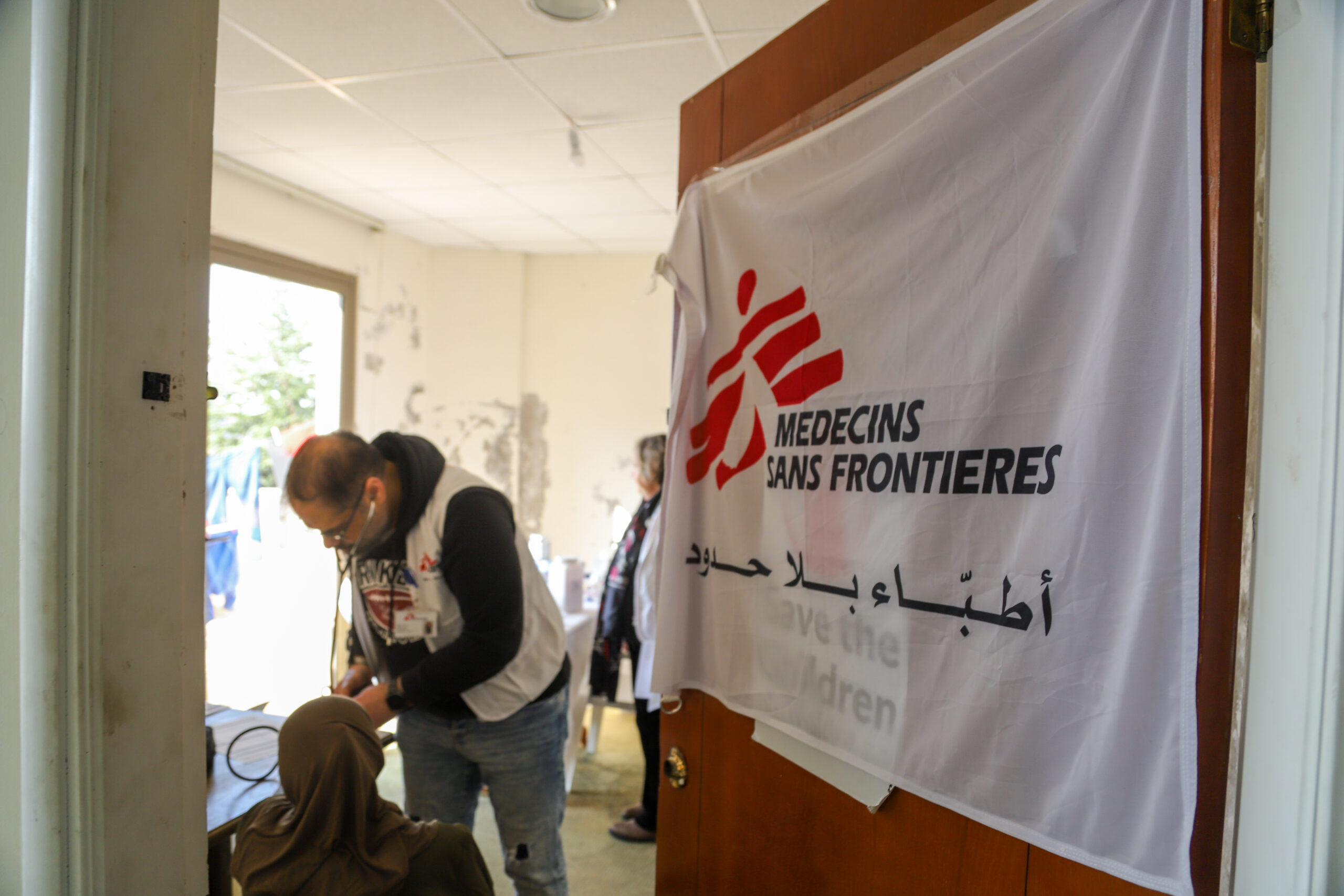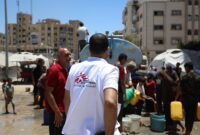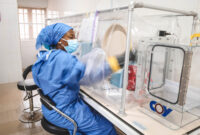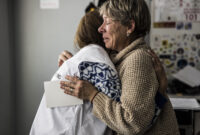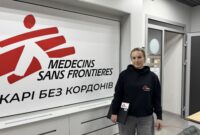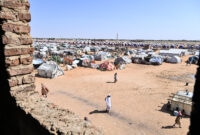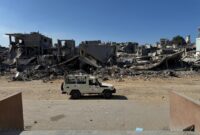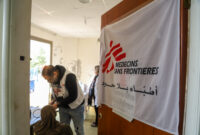Middle East: MSF adapts programs and prepares to scale up amid escalating conflict
MSF monitors rising humanitarian needs as violence spreads across several countries.
Doctors Without Borders/Médecins Sans Frontières (MSF) is alarmed by the dramatic escalation in conflict across the Middle East region, following strikes by U.S. and Israeli forces in Iran and Iran’s subsequent retaliatory actions in several countries. MSF is adapting our programs to respond and we are closely monitoring the rapidly evolving humanitarian needs.
Across the region, the escalation in violence has brought fear to the lives of millions of people. Bombing continues across multiple cities and villages, often hitting densely populated areas, and casualties are mounting. Civilians, hospitals, health facilities and other essential infrastructure must be protected at all times.
Our teams in both Iran and Lebanon are currently confirmed safe, and we are monitoring developments and assessing how to provide support to the people affected. We have medical supplies in both countries ready to be distributed.
Lebanon
In Lebanon, thousands of people have been displaced.
“The escalation in conflict comes after 15 months of a “’ceasefire agreement’ that never brought real safety for people in Lebanon,” says MSF Program Manager Francesca Quinto, MSF program manager. “The latest strikes and evacuation orders to all of Beirut’s southern suburbs and almost all of the south of the country are now forcing even more people to flee. And there is nowhere safe to go.”
For many people in southern Lebanon and other areas of the country, evacuation orders mean reliving the trauma of displacement all over again.
“Families who were slowly beginning to recover from previous fighting are being told to leave their homes,” says Quinto. “Some have been stranded on the roads with children, elderly older relatives, and sick family members, facing extremely harsh conditions.”
Our teams are adapting activities to respond to the emerging needs of displaced people, while ensuring continuity of care across our regular projects in the country. Since March 4, MSF has been providing medical consultations and psychological first aid through our mobile clinic in Saida, southern Lebanon, where some shelters have exceeded capacity. We also started providing shelters in Beirut with clean water and are conducting assessments in Beirut, Rashaya and other areas to scale up mobile clinics and supplies. We are in touch with the relevant authorities to provide additional support where needed.
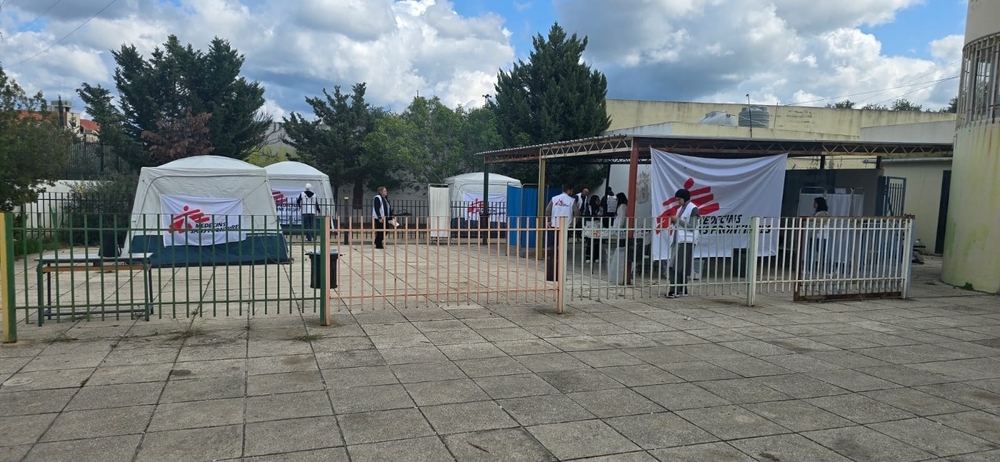
Iran
Before the escalation that began on Feb. 28,MSF had been running three projects in Iran, providing essential healthcare to equity-deserving people, including Afghan refugees and other communities in vulnerable circumstances. We were conducting 6,000 medical consultations per month and offering midwifery care, infectious disease screening and treatment and mental health support.
While airstrikes and communication blackouts have created operational challenges, MSF has so far been able to continue some activities.
Receiving information from our staff is extremely difficult. Our clinic in Tehran remains temporarily closed due to heavy bombing, while our clinics in Mashhad and Kerman are still open, operating with reduced staff. Our teams are seeking authorization to scale up emergency care support in response to conflict-related needs – opening our clinics 24/7 and supporting the local health systems – and are awaiting a response.
Palestine
Our teams in Gaza and the West Bank continue to address significant medical and mental health needs.
In Gaza, we have been providing vital services in approximately 20 health facilities and medical points. We treat people injured by explosives, provide care for malnourished children, and offer services for people with chronic diseases.
In the West Bank, our operations have been concentrated in Nablus, Qalqiliya, Tubas, Hebron, Jenin, and Tulkarem. We have been providing mental health, sexual and reproductive health, and general health care via mobile clinics, as well as supporting with water and sanitation in refugee camps.
Iraq
In Iraq, MSF has medical supplies available to be used or distributed in the region if needed.
MSF activities in Iran and Lebanon
Iran
MSF works in Iran to address healthcare gaps among equity-deserving communities, including Afghan refugees and other people in vulnerable situations. In South Tehran, where MSF opened a project in 2012, teams provide basic healthcare through a fixed clinic, mobile clinics and outreach activities. Services include care for infectious and non-communicable diseases, sexual and reproductive health, mental health and psychosocial support, wound care, hepatitis C screening and treatment, referrals for specialized care, as well as social support and health promotion. In Mashhad, near the Afghan border, MSF has been present since 1996. We runs mobile clinics providing medical and psychological consultations and screening for infectious diseases among groups in vulnerable situations alongside services in the Golshahr district for Afghan refugees that include counselling, health education, social support and referrals.
In Kerman province, MSF is the only medical organization providing direct healthcare services to Afghan refugees. Our primary healthcare centres serve underserved areas of Kerman city, which hosts around 200,000 Afghans. Since April 2024, MSF has operated the Vahdat clinic outside the city and runs another clinic in partnership with health authorities, offering care for infectious and non-communicable diseases, sexual and reproductive health, mental health and psychosocial support, wound care, and screening for tuberculosis, HIV and hepatitis B and C.
Lebanon
MSF teams in Lebanon support diverse communities facing barriers to accessing healthcare, going beyond basic healthcare to include distribution of relief items and referrals to specialist-level treatment in a country reeling from the aftermath of war. MSF currently runs clinics in Bourj Hammoud, a northern suburb of Beirut, targeting mostly migrant workers and providing medical and mental health care. In the governorate of Baalbek-Hermel, MSF runs two clinics in Arsal and Hermel, providing basic healthcare to communities in need. In the north of Lebanon, MSF supports the Ministry of Health’s clinics in Tripoli, Lebanon’s second largest city which faces deep economic hardship, and runs mobile clinics in Akkar, reaching Syrians who don’t have access to healthcare. In southern Lebanon, in the South and Nabatiyeh governorates, we have been running mobile clinics and supporting fixed primary healthcare facilities since the conflict surged in 2024.
